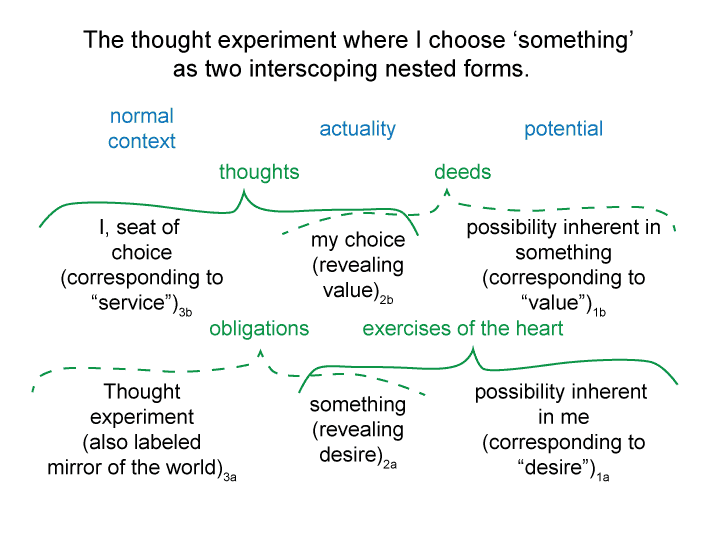Man and Sin by Piet Schoonenberg (1964) 2.3 MN
[In the corresponding intersection, the potential of me1H is situated by my heart2 through the normal context of the thought experiment3H or mirror of the world3H.
In this configuration, one can imagine how the vertical nested form may be regulated by the horizontal.
By contextualizing (permitting, inspiring, regulating, dictating, insisting, and so on) the heart2, the horizontal normal context3H influences the nested form containing I, seat of choice3V as well as the potential of something that underlies my choice1V.]

